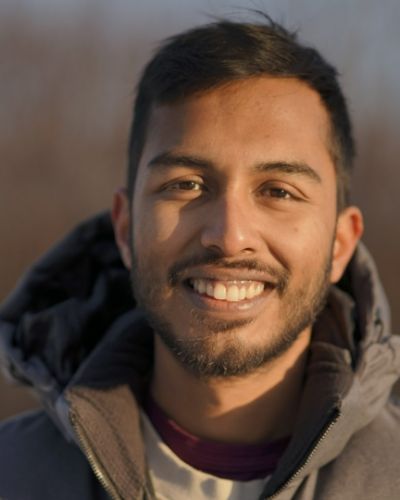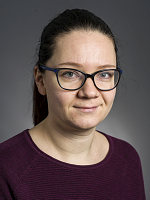When cancer cells spread the lymph nodes are often the first location they spread to. For more than 80% of patients whose cancer has spread from its primary site to distant organs, the cancer cells have initially travelled via the lymph nodes.
Dr Tatiana Belova, a postdoctoral researcher in the Kuijjer group at NCMM, Dr Salim Ghannoum, a postdoctoral researcher in the group of Dr Xavier Tekpli at Oslo University Hospital and Saikat Das Sajib, a PhD student in the group of Dr Erik Knutsen at the University of Tromsø will investigate the interactions between the immune cells in the lymph nodes and breast cancer cells.
Can you tell us a little bit about yourself?
I am a postdoc in the Kuijjer group. I am interested in methods and computational analysis of large-scale biological data, particularly exploring large-scale gene regulatory networks in cancer. My main project now focuses on studying inter-patient heterogeneity in gene regulatory landscape in cancer, where we try to identify main drivers of heterogeneity in cancer, among them transcription factors and their target genes which can be potentially used in targeted therapies.
Could you explain your project in a nutshell?

As you know, breast cancer remains the leading cause of cancer mortality worldwide, where the majority of cancer mortalities are due to the metastasis of tumor cells to other organs. The regional lymph nodes are the most common and the earliest site of metastasis. Some studies suggest that lymph nodes serve as the initial filter for cancer cells from the primary tumour. Other studies show that cancer cells that traveled via lymph nodes may develop defense mechanisms and enhance their capacity to metastasize.
Therefore, studying the interactions between the lymph nodes and cancer cells is important to find potential molecular therapy targets that could slow or even stop the spread of cancer. In this project, our collaborator, Saikat Das Sajib from UiT will do “the magic in the lab”, where he will co-cultivate breast cancer cell lines with lymphocytes from the lymph nodes of breast cancer patients. Then, we will use single-cell transcriptome sequencing technology and the computational methods developed in our group to model large and complex transcriptional networks for single cells which will allow us to study how interactions with lymphocytes may rewire the transcriptional program in breast cancer cells.
What does this success mean to you and what the funding will make possible?
I am very grateful to our group leaders Marieke Kuijjer (NCMM) and Erik Knutsen (UiT)

for the encouragement to apply for this funding, grateful we received it and very happy to be part of such an interesting project, where I can learn more about breast cancer biology and of course, it is always fun to get hands on new unexplored data!
What you are most looking forward to about this collaboration?
I am excited to collaborate with Saikat Das Sajib (UiT), Salim Ghannoum (OUS) and Xavier Tekpli (OUS) who have a lot of experience in breast cancer biology and single-cell RNA-seq data analysis. I am looking forward to our discussions and knowledge sharing.
